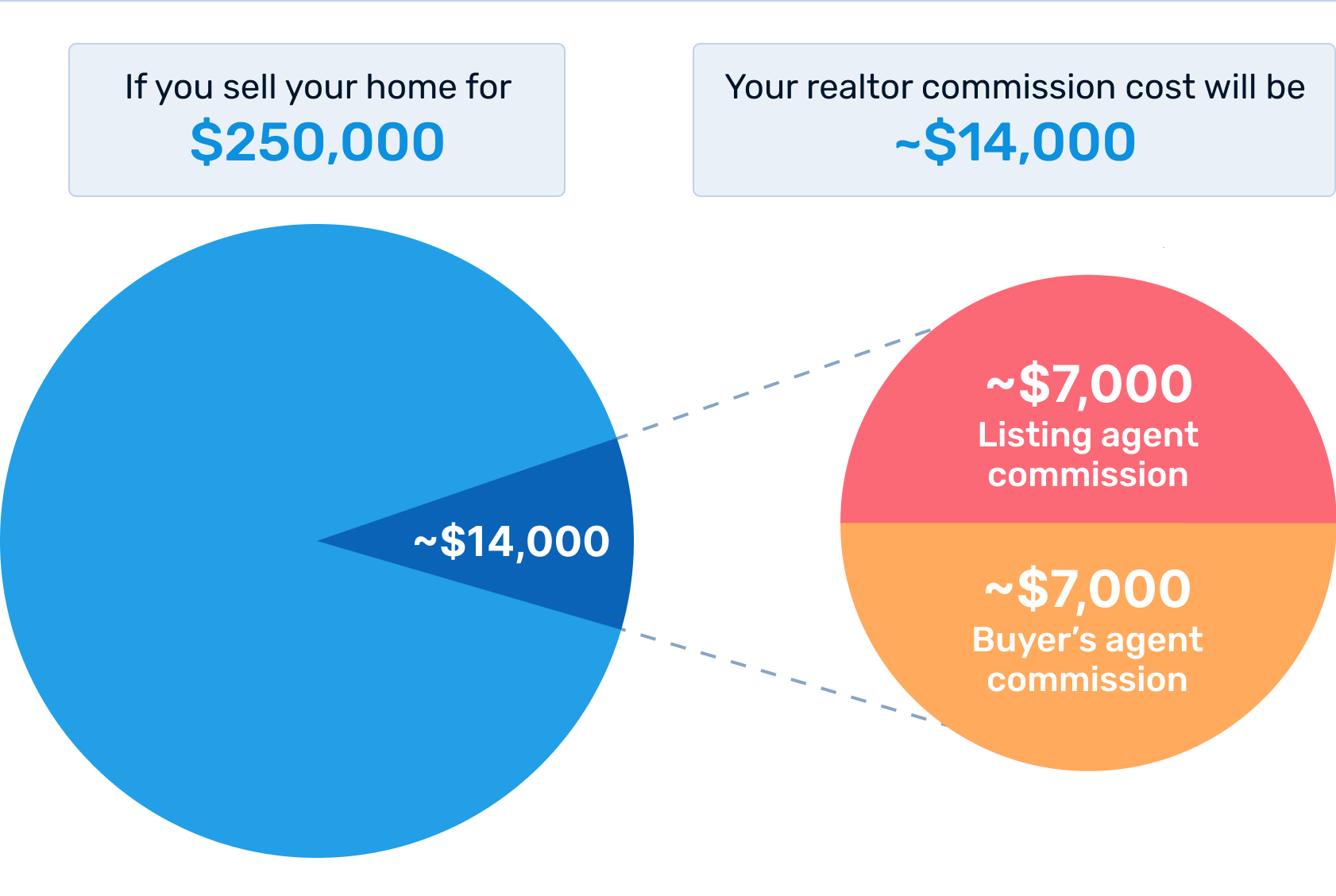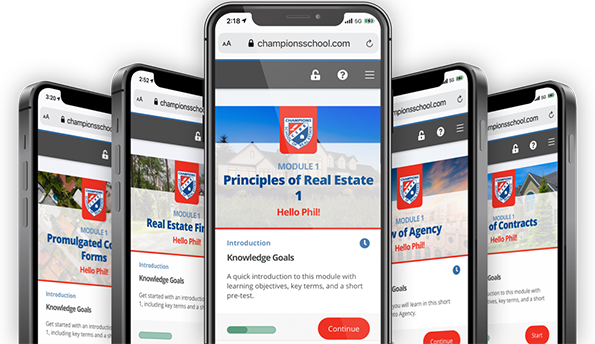
Contingent offers refer to a type real estate contract that requires one party to meet certain conditions before the final sale. These include financing, home inspections and more. These are a way to protect buyers from losing money in the event that the contract terms don't match their expectations.
There are times, whether you're a purchaser or seller, when it's better to make an agreement that is conditional on something happening. These contingencies will help ensure you get the house you want.
What to Do If You're Buying A House With A Contingent Offer
When a buyer wants to make an offer contingent on the inspection of their house, it is usually because they are unhappy with the result. This professional inspection is meant to reveal any potential problems that may arise if the buyer proceeds with the purchase.

Mold, termites and structural damage are some of the problems that can cost a lot to fix. Buyers who have made a contingent bid can choose to cancel the offer or renegotiate.
You Can Make a Contingent Purchase Offer if You Are a Buyer
Today's market is a tough one for contingency agreements. An appraisal may come back at a lower value than the agreed sale price or the buyer might not be able to obtain financing on time. It is for this reason that many sellers refuse to accept these kinds of offers.
You have two choices in these situations: either sell the house yourself, or wait until the contingency expires before removing it. In either case, your home will be put on the market when there is less competition. This increases the chances of a sale.
No matter what option you decide on, it is important to always discuss the details with your real-estate agent. They'll be able to help you understand what the contingency will involve, how long it will take and any other information that may be helpful for you.

You Should Never Waive a Contingent Offer
A home inspection is one of the most important contingencies in any real-estate sale. It's the only way for you to find out what you really need to know about a house before signing a contract and putting down an earnest money deposit.
If you're a seller, it's a good idea to write a kick-out clause into your sales contract, so that you can continue showing and accepting other offers during this period. You can remove the contingency if a better offer is received and proceed with the sale.
Depending on your needs, you may also consider renting for a short period of time before closing. This is a great way to get into the house of your dreams and save your money while you're searching for a new home. It's also a good way to protect yourself from selling your current home too quickly, as a buyer who puts down an earnest money deposit on a home that doesn't turn out to be what they expected can often leave the deal with nothing.
FAQ
How can I eliminate termites & other insects?
Your home will be destroyed by termites and other pests over time. They can cause damage to wooden structures such as furniture and decks. To prevent this from happening, make sure to hire a professional pest control company to inspect your home regularly.
Can I buy a house without having a down payment?
Yes! There are programs available that allow people who don't have large amounts of cash to purchase a home. These programs include conventional mortgages, VA loans, USDA loans and government-backed loans (FHA), VA loan, USDA loans, as well as conventional loans. More information is available on our website.
How do I calculate my interest rates?
Market conditions can affect how interest rates change each day. The average interest rates for the last week were 4.39%. Divide the length of your loan by the interest rates to calculate your interest rate. For example, if you finance $200,000 over 20 years at 5% per year, your interest rate is 0.05 x 20 1%, which equals ten basis points.
What flood insurance do I need?
Flood Insurance covers flood damage. Flood insurance helps protect your belongings, and your mortgage payments. Learn more information about flood insurance.
What should I consider when investing my money in real estate
The first step is to make sure you have enough money to buy real estate. You can borrow money from a bank or financial institution if you don't have enough money. Aside from making sure that you aren't in debt, it is also important to know that defaulting on a loan will result in you not being able to repay the amount you borrowed.
You also need to make sure that you know how much you can spend on an investment property each month. This amount should cover all costs associated with the property, such as mortgage payments and insurance.
Finally, you must ensure that the area where you want to buy an investment property is safe. It would be best if you lived elsewhere while looking at properties.
How many times may I refinance my home mortgage?
It depends on whether you're refinancing with another lender, or using a broker to help you find a mortgage. In either case, you can usually refinance once every five years.
How do I repair my roof
Roofs can leak due to age, wear, improper maintenance, or weather issues. Roofing contractors can help with minor repairs and replacements. Get in touch with us to learn more.
Statistics
- It's possible to get approved for an FHA loan with a credit score as low as 580 and a down payment of 3.5% or a credit score as low as 500 and a 10% down payment.5 Specialty mortgage loans are loans that don't fit into the conventional or FHA loan categories. (investopedia.com)
- 10 years ago, homeownership was nearly 70%. (fortunebuilders.com)
- Some experts hypothesize that rates will hit five percent by the second half of 2018, but there has been no official confirmation one way or the other. (fortunebuilders.com)
- Over the past year, mortgage rates have hovered between 3.9 and 4.5 percent—a less significant increase. (fortunebuilders.com)
- Private mortgage insurance may be required for conventional loans when the borrower puts less than 20% down.4 FHA loans are mortgage loans issued by private lenders and backed by the federal government. (investopedia.com)
External Links
How To
How to Manage a Rent Property
Renting your home can be a great way to make extra money, but there's a lot to think about before you start. This article will help you decide whether you want to rent your house and provide tips for managing a rental property.
This is the place to start if you are thinking about renting out your home.
-
What factors should I first consider? You need to assess your finances before renting out your home. You may not be financially able to rent out your house to someone else if you have credit card debts or mortgage payments. Check your budget. If your monthly expenses are not covered by your rent, utilities and insurance, it is a sign that you need to reevaluate your finances. This might be a waste of money.
-
How much does it cost to rent my home? Many factors go into calculating the amount you could charge for letting your home. These include factors such as location, size, condition, and season. Keep in mind that prices will vary depending upon where you live. So don't expect to find the same price everywhere. Rightmove estimates that the market average for renting a 1-bedroom flat in London costs around PS1,400 per monthly. This means that if you rent out your entire home, you'd earn around PS2,800 a year. Although this is quite a high income, you can probably make a lot more if you rent out a smaller portion of your home.
-
Is it worth the risk? Although there are always risks involved in doing something new, if you can make extra money, why not? Make sure that you fully understand the terms of any contract before you sign it. Renting your home won't just mean spending more time away from your family; you'll also need to keep up with maintenance costs, pay for repairs and keep the place clean. These are important issues to consider before you sign up.
-
Are there any benefits? Now that you have an idea of the cost to rent your home, and are confident it is worth it, it is time to consider the benefits. There are plenty of reasons to rent out your home: you could use the money to pay off debt, invest in a holiday, save for a rainy day, or simply enjoy having a break from your everyday life. You will likely find it more enjoyable than working every day. Renting could be a full-time career if you plan properly.
-
How do I find tenants? Once you've decided that you want to rent out, you'll need to advertise your property properly. Online listing sites such as Rightmove, Zoopla, and Zoopla are good options. Once you receive contact from potential tenants, it's time to set up an interview. This will help to assess their suitability for your home and confirm that they are financially stable.
-
How can I make sure that I'm protected? If you're worried about leaving your home empty, you'll need to ensure you're fully protected against damage, theft, or fire. You'll need to insure your home, which you can do either through your landlord or directly with an insurer. Your landlord will likely require you to add them on as additional insured. This is to ensure that your property is covered for any damages you cause. If your landlord is not registered with UK insurers, or you are living abroad, this policy doesn't apply. You will need to register with an International Insurer in this instance.
-
It's easy to feel that you don't have the time or money to look for tenants. This is especially true if you work from home. It's important to advertise your property with the best possible attitude. Post ads online and create a professional-looking site. Also, you will need to complete an application form and provide references. Some prefer to do it all themselves. Others hire agents to help with the paperwork. In either case, be prepared to answer any questions that may arise during interviews.
-
What happens after I find my tenant?After you've found a suitable tenant, you'll need to agree on terms. If you have a current lease in place you'll need inform your tenant about changes, such moving dates. If this is not possible, you may negotiate the length of your stay, deposit, as well as other details. Keep in mind that you will still be responsible for paying utilities and other costs once your tenancy ends.
-
How do I collect my rent? When it comes to collecting the rent, you will need to confirm that the tenant has made their payments. If they haven't, remind them. After sending them a final statement, you can deduct any outstanding rent payments. You can call the police if you are having trouble getting hold of your tenant. They will not usually evict someone unless they have a breached the contract. But, they can issue a warrant if necessary.
-
What are the best ways to avoid problems? You can rent your home out for a good income, but you need to ensure that you are safe. Install smoke alarms, carbon monoxide detectors, and security cameras. Check with your neighbors to make sure that you are allowed to leave your property open at night. Also ensure that you have sufficient insurance. You should not allow strangers to enter your home, even if they claim they are moving in next door.